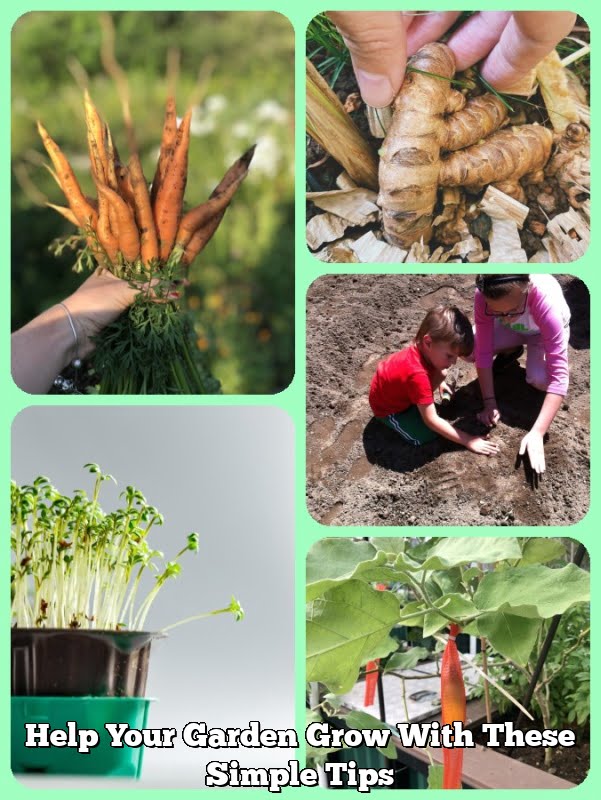Simple Soil For Home Vegetable Garden
ers
Soil is the foundation of a healthy garden. The better the soil, the healthier the plants will be and the more bountiful the harvest. Home gardeners can create healthy soil by adding organic matter to the soil.
Organic matter is anything that was once alive. It can be compost, leaves, grass clippings, manure, or anything else that was once part of a living organism. Organic matter helps to improve the texture of the soil, improve the soil’s ability to hold water and nutrients, and helps to break up clay soils.
Adding organic matter to the soil also helps to improve the soil’s ability to provide a food source for microorganisms. These tiny creatures are essential for healthy soil. They help to break down organic matter into a form that plants can use, and they also help to suppress disease-causing organisms.
The best way to add organic matter to the soil is to compost. Compost is simply a mixture of organic matter that has been broken down by microorganisms. It can be made from leaves, grass clippings, kitchen scraps, or any other organic material.
Compost can be added to the soil in several ways. It can be mixed in to the soil when planting, it can be spread on the surface of the soil and then tilled in, or it can be added to a compost pile and allowed to break down.
No matter how you add it, compost is a great way to improve the health of your soil. It is a slow-release source of nutrients that helps to keep plants healthy and productive.
What Kind Of Soil For Raised Vegetable Garden
There are many types of soil that can be used for a raised vegetable garden. The best type of soil for a raised vegetable garden will depend on the climate, the elevation, and the type of vegetables that are being grown.
The most important factor to consider when choosing soil for a raised vegetable garden is the pH level of the soil. The pH level of the soil can be tested with a soil pH tester. The pH level of the soil should be between 6.0 and 7.0 for most vegetables. If the pH level of the soil is not within this range, the vegetables will not be able to absorb the nutrients from the soil.
The next most important factor to consider when choosing soil for a raised vegetable garden is the type of soil. There are three types of soil: sandy soil, clay soil, and loamy soil. Sandy soil is light and does not hold water or nutrients well. Clay soil is heavy and holds water and nutrients well. Loamy soil is a combination of sand, clay, and organic matter.
The type of soil that is best for a raised vegetable garden depends on the climate and the elevation. In a cold climate, a raised vegetable garden should be planted in loamy soil to retain the heat from the sun. In a hot climate, a raised vegetable garden should be planted in sandy soil to prevent the soil from becoming too hot. In a high elevation, a raised vegetable garden should be planted in loamy soil to prevent the soil from becoming too dry.
The type of vegetables that are being grown also affects the type of soil that should be used for a raised vegetable garden. Root vegetables, such as carrots and potatoes, grow best in sandy soil. Leaf vegetables, such as lettuce and spinach, grow best in loamy soil. Fruiting vegetables, such as tomatoes and cucumbers, grow best in a soil with a pH level of 6.5.
Soil that is high in organic matter is the best type of soil for a raised vegetable garden. Soil that is high in organic matter is rich in nutrients and water. It also has a high pH level, which is ideal for most vegetables. The only downside to using soil that is high in organic matter is that it can be heavy and difficult to work with.
There are many types of soil that can be used for a raised vegetable garden. The best type of soil for a raised vegetable garden will depend on the climate, the elevation, and the type of vegetables that are being grown.
The most important factor to consider when choosing soil for a raised vegetable garden is the pH level of the soil. The pH level of the soil can be tested with a soil pH tester. The pH level of the soil should be between 6.0 and 7.0 for most vegetables. If the pH level of the soil is not within this range, the vegetables will not be able to absorb the nutrients from the soil.
The next most important factor to consider when choosing soil for a raised vegetable garden is the type of soil. There are three types of soil: sandy soil, clay soil, and loamy soil. Sandy soil is light and does not hold water or nutrients well. Clay soil is heavy and holds water and nutrients well. Loamy soil is a combination of sand, clay, and organic matter.
The type of soil that is best for a raised vegetable garden depends on the climate and the elevation. In a cold climate, a raised vegetable garden should be planted in loamy soil to retain the heat from the sun. In a hot climate, a raised vegetable garden should be planted in sandy soil to prevent the soil from becoming too hot. In a high elevation, a raised vegetable garden should be planted in loamy soil to prevent the soil from becoming too dry.
The type of vegetables that are being grown also affects the type of soil that should be used for a raised vegetable garden. Root vegetables, such as carrots and potatoes, grow best in sandy soil. Leaf vegetables, such as lettuce and spinach, grow best in loamy soil. Fruiting vegetables, such as tomatoes and cucumbers, grow best in a soil with a pH level of 6.5.
Soil that is high in organic matter is the best type of soil for a raised vegetable garden. Soil that is high in organic matter is rich in nutrients and water. It also has a high pH level, which is ideal for most vegetables. The only downside to using soil that is high in organic matter is that it can be heavy and difficult to work with.
How To Cultivate Soil For A Vegetable Garden
Soil is the foundation of a successful vegetable garden. The better the soil, the better the garden will be. There are many ways to cultivate soil for a vegetable garden. The best way to cultivate soil for a vegetable garden depends on the type of soil you have.
If you have clay soil, the best way to cultivate soil for a vegetable garden is to add organic matter to the soil. Organic matter will help to loosen the soil and improve drainage. You can add organic matter to the soil by adding compost, manure, or green manure.
If you have sandy soil, the best way to cultivate soil for a vegetable garden is to add organic matter and fertilizer. Organic matter will help to hold moisture in the soil and fertilizer will provide the nutrients the plants need to grow. You can add organic matter and fertilizer to the soil by adding compost, manure, or green manure.
If you have loam soil, the best way to cultivate soil for a vegetable garden is to add organic matter. Organic matter will help to loosen the soil and improve drainage. You can add organic matter to the soil by adding compost, manure, or green manure.
No matter what type of soil you have, it is important to add compost to the soil. Compost will improve the texture of the soil, the drainage, and the fertility of the soil. You can add compost to the soil by adding compost, manure, or green manure.
The best way to cultivate soil for a vegetable garden depends on the type of soil you have. If you have clay soil, the best way to cultivate soil for a vegetable garden is to add organic matter to the soil. If you have sandy soil, the best way to cultivate soil for a vegetable garden is to add organic matter and fertilizer. If you have loam soil, the best way to cultivate soil for a vegetable garden is to add organic matter. No matter what type of soil you have, it is important to add compost to the soil. Compost will improve the texture of the soil, the drainage, and the fertility of the soil.
Potting Soil Or Garden Soil For Vegetables
One of the most important things you need to know when growing vegetables is what kind of soil to use. Potting soil is different from garden soil. Potting soil is made for plants that are grown in pots. It is lighter and has more organic matter than garden soil. Garden soil is made for plants that are grown in the ground. It is heavier and has less organic matter than potting soil.
You can use garden soil to grow vegetables in pots, but it is not the best soil for this purpose. Garden soil is heavier than potting soil and it does not have as much organic matter. This means that it is harder for the soil to hold moisture and the vegetables will not grow as well in it. Garden soil can also be full of weed seeds.
Potting soil is made for plants that are grown in pots. It is lighter and has more organic matter than garden soil.
You can use potting soil to grow vegetables in the ground, but it is not the best soil for this purpose. Potting soil is lighter than garden soil and it has more organic matter. This means that it is easier for the soil to hold moisture and the vegetables will grow better in it. Potting soil is also free of weed seeds.
Bulk Soil For Vegetable Garden
ers
When starting a vegetable garden, it is important to use the right type of soil. Soil that has been enriched with compost is best for vegetables. However, not all gardeners have the time or resources to create their own compost. If this is the case, using bulk soil is a good alternative.
Bulk soil is a soil that has been enriched with organic matter and is available for purchase by the bag or truckload. It can be used to fill raised beds, gardens, or containers. When selecting a bulk soil, it is important to choose one that is high in organic matter and has been amended with compost or other organic matter.
A good way to test the quality of a bulk soil is to squeeze a handful of the soil. If it falls apart in your hand, it is likely that the soil is low in organic matter. If the soil is sticky, it is likely that it is high in organic matter.
When using bulk soil in a garden, it is important to mix it in with the native soil. This will help to ensure that the soil is well-drained and has the proper pH level.

If you’re looking to get into vegetable gardening, or are just looking for some tips on how to make your current garden better, then you’ve come to the right place! My name is Ethel and I have been gardening for years. In this blog, I’m going to share with you some of my best tips on how to create a successful vegetable garden.





